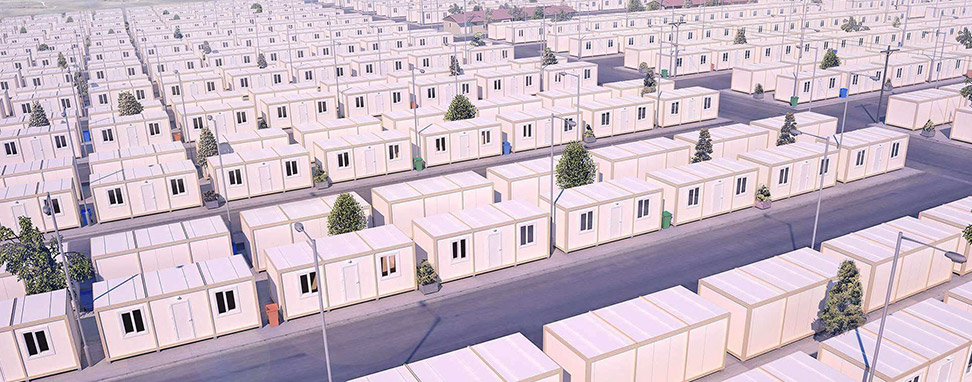Prefab modular camps are revolutionizing the way we think about temporary and semi-permanent living spaces. These camps, constructed using prefabricated modules, offer a highly efficient, flexible, and cost-effective solution for various applications, including remote work sites, emergency housing, and recreational facilities.
A prefab modular camp is a structure built using prefabricated modules or units that are manufactured off-site and then transported to the desired location for assembly. These modules are designed to fit together seamlessly, creating a fully functional living or working space. The modular approach allows for quick and easy installation, making it an ideal choice for projects that require rapid deployment or have limited access to traditional construction resources.
One of the primary benefits of prefab modular camps is the speed of construction. Since the modules are manufactured off-site in a controlled environment, they can be produced simultaneously with site preparation. This parallel processing significantly reduces the overall construction time, enabling the camp to be operational much faster than traditional building methods.

Prefab modular camps are often more cost-effective than traditional construction due to several factors. The factory-controlled production process minimizes material waste and reduces labor costs. Additionally, the reduced construction time translates to lower on-site expenses, such as equipment rental and workforce accommodation.
The modular nature of these camps provides a high degree of flexibility. Modules can be added, removed, or reconfigured as needed to accommodate changing requirements. This makes prefab modular camps an ideal solution for situations where the size and layout of the facility may need to change over time, such as in remote work camps or disaster relief efforts.
Prefabricated modules are built in a controlled environment, ensuring consistent quality and adherence to strict building standards. The materials used in prefab modular camps are typically designed for durability and can withstand various environmental conditions. This makes them suitable for use in harsh climates or challenging terrains.
Prefab modular construction is inherently more sustainable than traditional building methods. The off-site manufacturing process reduces material waste, and the efficient design minimizes the environmental impact during installation. Additionally, many prefab modular camps are designed to be energy-efficient, incorporating features like insulation and energy-saving systems.
Prefab modular camps have a wide range of applications across different industries and sectors:
Industries such as mining, oil and gas, and construction often require temporary accommodations for workers in remote locations. Prefab modular camps provide a quick and reliable solution for creating comfortable living and working spaces in these areas.
In situations where rapid deployment of temporary housing is required, such as after natural disasters, prefab modular camps offer a practical solution. They can be quickly assembled to provide shelter, medical facilities, and other essential services.
Military and government agencies often use prefab modular camps for temporary bases, command centers, and housing in field operations. Their portability and ease of assembly make them ideal for use in various environments.
Prefab modular camps are also popular in the tourism industry, particularly for creating eco-friendly resorts, glamping sites, and temporary event accommodations. Their modular design allows for creative layouts and configurations to suit different needs.
Key Considerations for Implementing Prefab Modular Camps
When considering the implementation of a prefab modular camp, several factors should be taken into account:
Proper site preparation is essential for the successful installation of a prefab modular camp. This includes ensuring that the site is accessible, level, and has the necessary infrastructure, such as utilities and drainage.
Prefab modular camps can be customized to meet specific needs, so it's important to work with a manufacturer that offers design flexibility. Consider the layout, amenities, and features that are required for the intended use of the camp.
Ensure that the prefab modular camp meets local building codes and regulations. This includes considerations for safety, accessibility, and environmental impact.
Prefab modular camps offer a modern, efficient, and versatile solution for a wide range of applications, from remote work sites to emergency housing and recreational facilities. Their speed of construction, cost-effectiveness, and adaptability make them an attractive option for projects that require flexible and durable living or working spaces. By considering factors such as site preparation, design customization, and regulatory compliance, prefab modular camps can be successfully implemented to meet the unique needs of any project.








